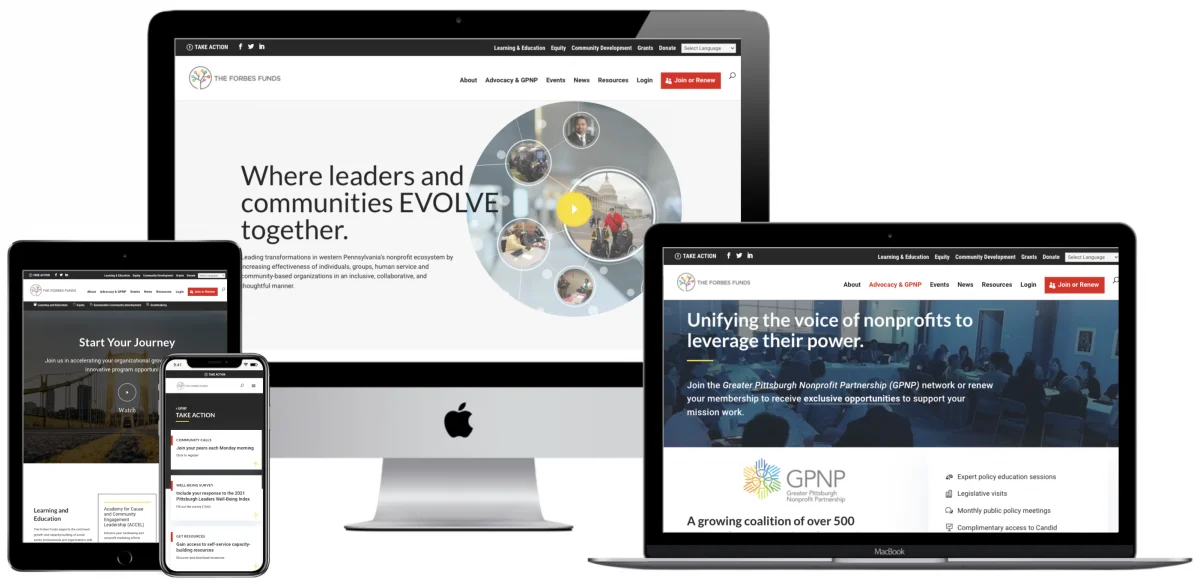Think of consumer brands you love – from your favorite coffee to your favorite clothing brand or tennis shoe. Do you drink Starbucks or boutique specialty coffee? Do you love high-end designers or high-street fashion? Are you more Nike, New Balance, Adidas, or something else? Now think of companies that have a reputation you admire. It might be local cafes, nonprofits, or even giants like Netflix, Google, or Apple. Why do you make purchases and what drives that decision-making? There’s probably some marketer being the brand’s purpose-driven marketing and a key element of storytelling.
In today’s competitive business landscape, you as a consumer – perhaps without realizing it – may not only be looking for products or services but also searching for brands that resonate with your values and beliefs. Purpose-driven marketing has emerged as a powerful strategy for businesses to connect with their audience on a deeper level. At the heart of this strategy lies storytelling.
Storytelling goes beyond traditional advertising; it creates an emotional connection between a brand and its customers, allowing companies to convey their purpose and values authentically. Let’s delve into the profound impact of storytelling in purpose-driven marketing, exploring how it can inspire, engage, and drive meaningful change.
The psychology of storytelling
Why is storytelling so effective in influencing human behavior? Storytelling has been a fundamental part of human culture for millennia, and it taps into the psychology of how our brains process information. We make sense of the world through storytelling. You may come home and tell your spouse, partner, or children about your day and vice versa. You’ll frame certain details – leaving out ones they already know – or provide context. When organizations (or “brands” as everything is now becoming) tell stories, they tap into this fundamental human love of stories.
Stories evoke emotions, and emotions are a potent driver of decision-making, also known as emotional engagement. When people connect emotionally with a story, they are more likely to remember it and take action. When charities ask for donations, they usually connect it to something specific whether it’s rescuing a dog from the pond or saving the lives of children in the third world.
Stories also package information in a way that’s simple to comprehend and process. Stories simplify complex information by organizing it into a narrative structure, making it easier for people to remember and connect with the message.
Stories often feature relatable characters or situations, allowing the audience to see themselves in a story. Movies and books do this very well, sometimes even commercials. Even the most grumpy, unlovable, end-of-their-rope characters often redeem themselves and have enough relatable elements that you keep watching, after all.
We often remember silly stories, even books we loved as children, which is because humans are wired to remember stories better than facts or statistics. A well-crafted brand story sticks in people’s minds.
Okay, so how do you connect the human love of stories to marketing?
Purpose-driven marketing
Purpose-driven marketing involves aligning a company’s values and mission with its marketing efforts. It goes beyond profit and focuses on making a positive impact on society, the environment, or a specific cause. Consumers today are not only interested in what a company sells but also in what it stands for. Purpose-driven marketing recognizes this shift and leverages storytelling to convey a brand’s commitment to its purpose.
So, when creating stories around your organization and brand, consider the elements of purpose-driven storytelling such as authenticity; clear values and mission; human-centered elements; conflict resolution; and visual storytelling.
Let’s explore the elements of purpose-driven marketing and storytelling a little more:
- Authenticity: Authenticity is paramount in purpose-driven storytelling. Audiences can quickly spot insincerity or greenwashing. Brands must be genuine in their commitment to their purpose.
- Clear values and mission: A compelling purpose-driven story begins with a clear understanding of the brand’s values and mission. These should drive the narrative and inform every aspect of marketing.
- The human-centered element: Effective purpose-driven stories often focus on individuals or communities impacted positively by the brand’s actions. This human-centric approach helps consumers connect with the cause.
- Conflict and resolution: Just like any great story, a purpose-driven narrative should have conflict and resolution. It should highlight the challenges faced and how the brand’s actions contribute to a positive outcome.
- Visual storytelling: Visual elements, such as videos, images, and infographics, enhance the storytelling experience. They can convey emotions and messages more effectively than text alone.
Case studies: brands that excel in purpose-driven storytelling and marketing
You have probably heard of the following four brands and they evoke some sort of feeling of community, connectedness, and the power of doing good – or something along those lines. When you’re telling the brand story for your organization, consider these companies – as they’re examples of doing it right!
- Patagonia: Whether you want people to think you hike or just want a cozy fleece, most people have heard of this brand. This outdoor clothing brand has made environmental conservation a central part of its identity. Through campaigns, documentaries, and compelling stories, Patagonia showcases its commitment to sustainability and activism.
- Dove: Dove – of soap fame – has a “Real Beauty” campaign that challenges beauty stereotypes and celebrates diversity. Their storytelling efforts include powerful videos and social media campaigns that resonate with their audience.
- TOMS: Remember the 2010s when everyone had a pair of their signature shoes even though they weren’t as “aesthetically pleasing” as other shoes (I even had at least five pairs in different colors)? At least they are legitimately comfy! TOMS’ “One for One” model, where a pair of shoes is donated for every pair sold, is at the heart of their storytelling. Their customers feel that their purchase makes a meaningful difference.
- Ben & Jerry’s: Besides, the amazing fusion flavors like cookie dough and brownies. Together in one actual pot. Yum. The ice cream company is well-known for its social and environmental activism. They use humor and creativity in their storytelling to engage audiences in causes like climate change and social justice.
The impact of purpose-driven storytelling
If you marry the elements of marketing and good storytelling with your organization’s mission, vision, and values – with aims to make an actual difference in the world – it’s a powerful tool with effects that go beyond selling products or getting people to donate to a good cause.
Here’s an outline of how purpose-driven storytelling and marketing can work for your organization.
- Builds brand loyalty: Purpose-driven storytelling creates a strong emotional bond between a brand and its customers. When people resonate with a brand’s values, they are more likely to become loyal advocates.
- Differentiates the organization in a crowded market: In a world saturated with advertising, purpose-driven marketing sets a brand apart. It gives consumers a reason to choose one brand over another, based on shared values.
- Attracts top talent: Companies that embrace purpose-driven marketing not only attract customers but also top talent. Many employees want to work for organizations that are making a positive impact on the world.
- Provides a positive public perception: Purpose-driven brands tend to enjoy a more positive public perception, which can help them weather crises and challenges more effectively.
- Drives social change: Purpose-driven marketing can have a broader societal impact by raising awareness of important issues and inspiring collective action.
All of these are the fringe benefits to good storytelling as well as creating and being part of an organization that believes in the greater good, no matter how big or small the contribution – it’s all meaningful. But it’s not without its challenges.
Challenges and ethical considerations
While purpose-driven storytelling can be powerful, it also comes with challenges and ethical considerations such as authenticity and greenwashing where brands must actually align with what they say is their purpose. Their actions have to align with their storytelling or it seems disingenuous.
Consumers increasingly hold brands accountable for their actions. Brands must be prepared to address criticism and continuously work toward their purpose, which is why authenticity is key.
When companies are all jumping on the purpose-driven marketing bandwagon, the market may become oversaturated with companies that are now trying to “do good” which means your brand still has to stand out from the crowd, which is no easy feat.
Finally, brands must ensure that their actions are ethical throughout their supply chain, from sourcing materials to labor practices, if relevant. Not all brands have sourcing but when you hire people you can have best practices as far as pay and conditions, as other examples. (Which ties into Key Medium’s mission of CO.CAREERS.)
The takeaways
Purpose-driven marketing, fueled by storytelling, has the power to transform how businesses engage with their customers and contribute to a better world. By weaving a compelling narrative that authentically reflects their values and mission, brands can inspire consumers to buy their products and support their cause. As consumers continue to demand more from the brands they patronize, those who embrace purpose-driven storytelling are likely to thrive in this evolving landscape, leaving a lasting impact on both their bottom line and society as a whole. In short, having a mission and brand hand in hand is the right thing to do.
Get in touch with Key Medium to find out how we can help you start your purpose-driven storytelling journey today.

Elaine Frieman holds a Master’s Degree and is a UK-based professional editor, educational writer, and former marketing agency content writer where she wrote articles for disparate clients using SEO best practice. She enjoys reading, writing, walking in the countryside, traveling, spending time with other people’s cats, and going for afternoon tea.

